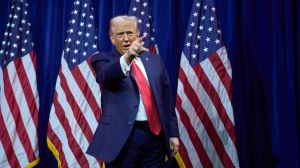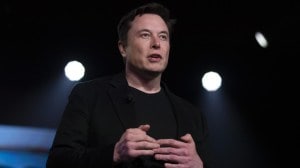Globally warmed-up questions
There exists no globally accepted mechanism that can ensure that if I make the right choice, I see others also making the right choice

It is the choices we make individually and/or collectively that determine the welfare level that we can achieve. While the welfare of all life forms matters, ultimately it is the welfare of human beings that is central. So the new knowledge presented in the report of the Intergovernmental Panel on Climate Change IPCC matters to each one of us. Efficient decision making is welfare-enhancing. We are all, consciously or unconsciously, making choices to attain the maximum welfare. But welfare is subjective. There is nothing wrong in a selfish motive unless it reduces someone else8217;s welfare. How does all this matter in the context of the recent IPCC WG1 report?
The report reduces uncertainty, by making scientifically confident statements that in making choices over the past couple of centuries, human beings have made many mistakes 8212; mistakes that cannot be corrected. It is now scientifically substantiated that we have lost for ever a great deal of our tropical forests, glaciers, desertified lands, species. The report says, with enhanced confidence, that it is the lifestyles chosen by the people since the industrial revolution, defined by fossil fuel use and conversion of land to agricultural practices, that has added to atmospheric concentrations of GHGs greenhouse gases like carbon dioxide, methane and nitrous oxide, which in turn have created global warming. The good side to this bad news is that this new scientific evidence should motivate us to make the right choices.
Governmentality goes beyond governance, but the latter can be one major means of change. Going by behaviourial science, we can say that individual choice is governed by the options that a political, economic and social system offers. So to make any right decision the first corrective measure needs to be at the policy level, which defines the options. Incidentally, people are governed by national policies. The world on this issue is divided into Annex I and Annex II countries. In some sense, it is not wrong to say that no nation state has helped its citizens to make the right choices by seriously changing the options defined by its development policies. The other positive view, which also has some truth, is that some discrete efforts are happening in both Annex I and Annex II countries. Still the dominant view is that if I allow my people to make the right choices by not following the conventional lifestyle, how does it ensure that rest of the world also follows? This mutual distrust has led to mass inaction.
The distrust has a logic, if we understand one typical character of the problem, which is not explicitly stated in the summary report. The GHGs emitted at any point in time also have their own life spans. Released today, they can remain in the atmosphere for many years 8212; even up to more than a century. GHGs released by the people for attaining welfare is like a bank account with reverse implication. If I put money in bank every day, my wealth increases and makes me better off. But unlike money, if we put GHGs every day into the atmosphere bank, the cumulative effect will be the depletion of our collective natural wealth, which can in extreme case even lead to the extinction of life on earth. Whatever GHGs have been emitted over the past 100 years by Annex I countries are already affecting our lives now. With more emissions to come from both Annex I and Annex II countries, we are destined for catastrophe. So we have a selfish motive is interfering with someone else8217;s welfare: it matters if I act and someone else does not.
So the question of efficient decision-making and justice 8212; equal but differentiated responsibility 8212; are closely linked. The question that has come up over and over again is who bears how much of the responsibility for reducing GHG emissions. The answer is obvious. Each citizen on earth 8212; either as consumer or producer 8212; needs to share the responsibility. The follow-up question frequently asked is, if my share in global fossil fuel use is less, do I bear less responsibility? The UN framework has adopted in principle that the responsibilities need to be differentiated. The Stern Review reiterates the view. But there exists no globally accepted mechanism that can ensure that if I make the right choice, I see others also making the right choice. We need a solution to this. The million-dollar question is, how can we do this?
Over the past years, efforts are building up in a scattered fashion to make a difference in the post-industrialisation regime through technology development and lifestyle changes, or a mix of these. But they are not enough to secure our future. So the question remains: how do we share the burden of the past additions of GHGs and the likely additions in the future? Let Annex I and Annex II countries commit to do whatever they can, within their capabilities and simultaneously look for the answer to the million-dollar question.
The writer is coordinator, Global Change Programme, and professor of Economics, Jadavpur University
- 01
- 02
- 03
- 04
- 05































